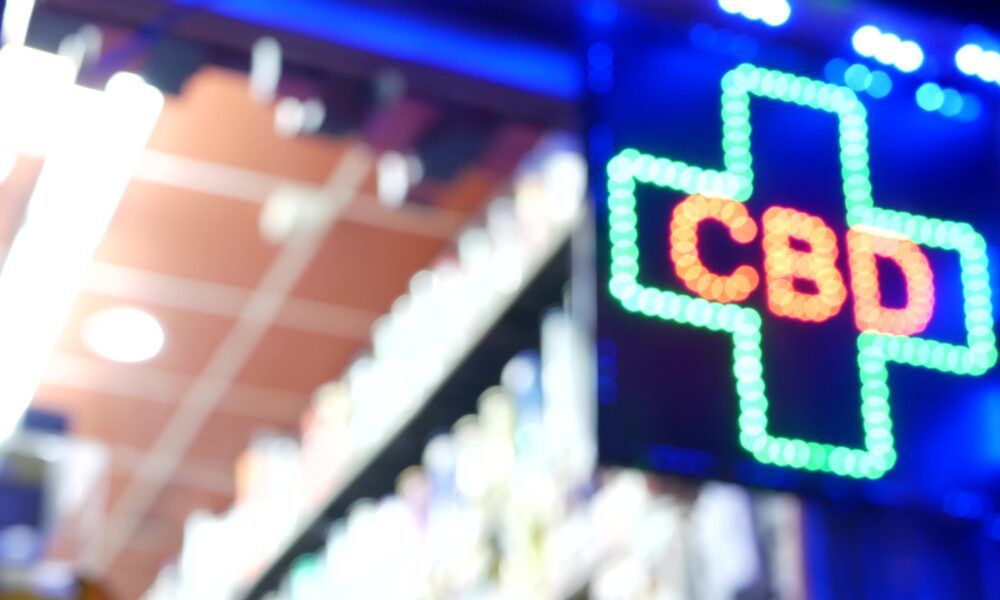Herban Bud Launches Blendz Disposable Vapes
AUSTIN, Texas – April 18, 2023 – Herban Bud, a premium provider of maximum strength cannabis products made from legal hemp plants, announced today the launch of its brand new disposable vape line, Blendz. The line includes three flavors, Grape Ape (indica), Super Lemon Haze (sativa), and Strawnana (hybrid) and can be purchased separately or in a bundle of three.

Blendz are created with a custom formula by Herban Bud that features the highly euphoric Delta-11 (11-hydroxy-THC), an HHC base, and 10% THCp aka the special ingredient that makes this blend so powerful and potent. Blendz Disposable Vapes are Farm Bill compliant and federally legal, and with two grams of oil in each vape, there’s plenty of juice to keep cannabis enjoyers lifted.
“Our new Blendz vapes are one of the strongest–if not the strongest–legal hemp vapes for sale on the market,” said Paul Trowe, founder of Herban Bud. “We carefully balanced our formula to create a product appealing to recreational and medicinal customers. The formula includes the growingly popular Delta 11 cannabinoid and added HHC and THCp to maximize on potency. This vape will hit you much harder than other cannabis products like Delta 9 and can also provide a stronger dose of physical relief for those looking to manage pain and promote relaxation.”
Once activated by heat, the Delta 11 (11-hydroxy-THC) cannabinoid is naturally created by the body as it breaks down Delta 9 THC. Delta-11 THC is a naturally-occurring cannabinoid within the hemp plant and not a synthetic cannabinoid. HHC (hexahydrocannabinol) is a hemp-derived cannabinoid that creates a similar body high to Delta-9 THC, but at a slightly lower potency (roughly 80% the strength of Delta-9). THCp (tetrahydrocannabiphorol) is a natural cannabinoid that bonds well with the user’s cannabinoid receptors, creating a euphoric high potentially 20 times stronger than Delta-9 THC. This vape is 10% THCp for potent physical relief and relaxation.
The new line of Blendz disposable vapes includes:
● Blendz Single Use Vape ($39.99) – This custom blend from Herban Bud features the highly euphoric Delta-11. With the addition of gentle HHC and 10% THCp, this blend is powerful and potent. Users report a fast onset of effects, with a strong euphoric lift and a floaty body feeling.
Choose from three strains:
○ Grape Ape (Indica)
○ Super Lemon Haze (Sativa)
○ Strawnana (Hybrid)
● Blendz Bundle ($89.99) – Each bundle includes: 1 Grape Ape (indica), 1 Super Lemon Haze (sativa), and 1 Strawnana (hybrid).
Each product is carefully formulated with the best organic hemp products available. Unlike some brands, Herban Bud never pads its products with low cost cannabinoids, and that’s why its products are some of the most effective on the market. Herban Bud has the highest standards when it comes to cannabis products and all Certificates of Analysis are publicly available.

Herban Bud also sells gummies, pre-roll joints, and loose flower in THCa, Delta-8, HHC, THCo and THCp products. For more information on other products sold, please visit the Herban Bud website.
For more information on HHC and hemp disposable vapes, its benefits and the current research, please visit the Herban Bud blog.
###
Herban Bud, a premium provider of maximum strength cannabis products made from legal hemp plants based out of Austin, Texas. The cannabis company makes and sells the strongest legal edibles, vapes, and THC flower in the forms of Delta-9, Delta-8, HHC, THCo, and THCa. Legal THC products are available online, or at hundreds of distributors nationwide. The brand’s current largest markets are currently in Texas, Florida and North Carolina. Follow the brand on Instagram at @herbanbudtx or visit the blog for more information on legal cannabis.








































